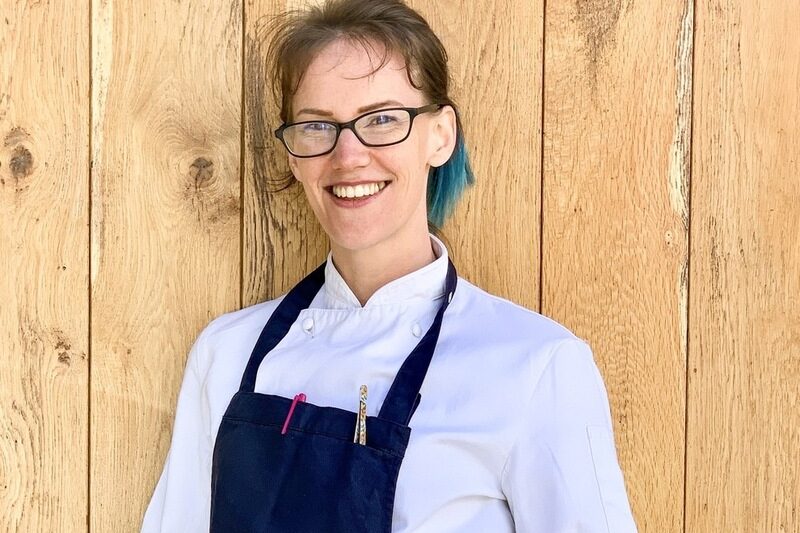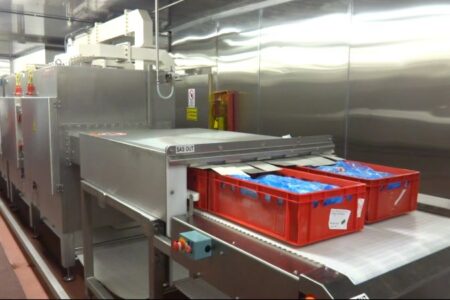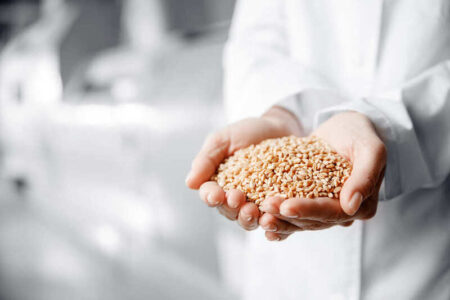Food shoppers and green washing

Holly Taylor, one of the founders of Kindling Restaurant in Brighton. Image: Jo Hunt Restaurants, Brighton.
In a world that’s ever more focused on sustainability, choosing ingredients that are kinder to the environment has never been more important to consumers. As consumer demand for environmentally friendly products has risen, greenwashing has become increasingly common. But it is becoming harder to skew the public’s perception of products as they become more savvy shoppers.
Increasingly, consumers are realising that seeing terms such as green, non-toxic, plant-based, plant-derived, pure, raw, healthy, all-natural are not a guarantee of the ethical practices they want to see. They are becoming wise to unsubstantiated claims, or those referring only to a specific aspect of food production, or those that are entirely false.
These are a few of the ways consumers are spotting greenwashing?
Vague claims
Maybe a company uses very general terms such as ‘green’ or ‘eco-friendly’ but doesn’t provide any reason for their statement. Companies that are proud of their commitment to the environment will have the information behind their claims freely available and will happily answer consumer questions. Consumers are watching out for claims that are imprecise and have no evidence to back them up. Fewer are fooled by clever branding that makes a product look environmentally friendly when it has no right to be.
Whole life cycle of a product
A product that is labelled plant-based may well be an excellent, healthy product, but if it is made using ingredients grown in many different parts of the world and those ingredients are transported many miles before being used to create the product, there is a carbon footprint issue. Similar products made using more locally sourced ingredients are likely to be preferred.
Certification
Many companies rely on it being too much bother for people to research everything they eat, a but there is a growing number of sustainability certification bodies, such as B Corp, The Ethical Company Organisation, Planet Mark and FutureFit Business that provide comprehensive assessments and certifications for companies that truly want to address their environmental impact. These organisations offer businesses a roadmap so they can measure and mitigate their social and environmental impact, with the end goal of reducing their contribution to climate change.
Considering carbon offsetting
In the last few years carbon offsetting has become very popular with large corporations who wish to appear more environmentally friendly, but sadly this isn’t a long-term solution to climate change. Sure, planting trees to suck carbon dioxide out of the atmosphere as they grow is a positive thing. But it’s significantly less positive than not producing so many greenhouse gases in the first place. The buzz around carbon offsetting distracted consumers from the core problem — skyrocketing carbon emissions — but there is an increasing awareness that, while offsetting schemes aren’t bad, they don’t cancel out the emissions to which they are linked, allowing companies to continue with unsustainable behaviour while shifting their responsibility for the climate onto the consumer.
Going back to basics
One of the best ways to avoid greenwashing in food is to get back to basics as much as possible, and there is a growing movement towards buying food locally from the people who produce it. Many farmers are championing regenerative agriculture – a farming practice that aims to enhance the land and work with the environment rather than against it.
While the impact each individual consumer may be small, the combined spending power of the public can make a significant change to the decisions of companies, organisations and governments that can bring about real change in our efforts to tackle the climate challenges we face.
About the restauranteurs
Holly Taylor and Toby Geneen are the founders of Kindling Restaurant in Brighton. Kindling is about more than just the delicious food, it is a community of people: staff, customers and suppliers all sharing and celebrating local produce. Nature writes the menu as the seasons inspire the dishes. Kindling is featured in the Michelin Guide and is a member of the Sustainable Restaurants Association.



